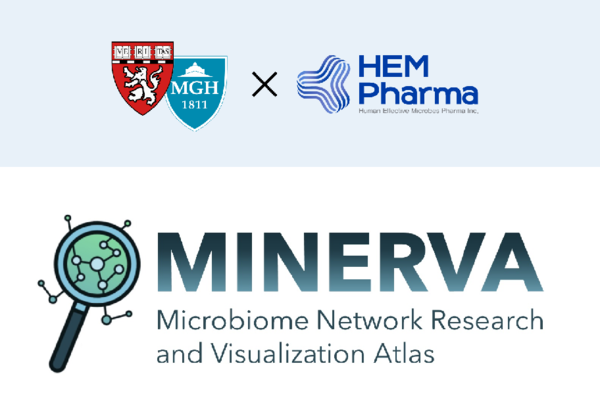HEM Pharma said Tuesday that results from its AI-based microbiome analysis platform MINERVA (Microbiome Network Research and Visualization Atlas), developed through a three-year collaboration with Harvard Medical School, have been published in Briefings in Bioinformatics (Impact Factor 7.7, JCR Q1), a leading journal in the bioinformatics field.

MINERVA is a microbiome knowledge graph platform built by analyzing and organizing more than 130,000 microbiome-related papers in the U.S. National Institutes of Health (NIH) database using AI and large language models (LLMs). It automatically structures vast academic information, visualizes correlations between the microbiome and diseases, and offers a user-friendly interface -- including chat-based search -- so that researchers and companies can use it easily.
Currently, MINERVA connects 3,429 microorganisms, 35,883 diseases, and 66,400 relationships in a single network. The platform also allows users to trace results back to exact sentences in the original literature, enhancing reliability and verifiability. The paper highlights Alzheimer’s disease as an example, showing how MINERVA explores and visualizes complex links between the disease and the microbiome.
HEM Pharma’s accumulated microbiome data played a central role in the research. The company has built its dataset through joint studies with hospitals and through IND applications for phase 2 clinical trials in the U.S. and Australia. Combined with MINERVA’s literature analysis, this enabled a more systematic mapping of microbiome–disease associations and showed the platform’s potential for expansion into disease prediction and personalized healthcare.
Development of MINERVA also benefited from broad collaboration. HEM Pharma led data structure design, model validation, and user accessibility improvements. Harvard Medical School researchers partnered with Amazon Web Services (AWS) to build the global cloud infrastructure, ensuring stable large-scale data processing. This foundation helped MINERVA evolve into a future-oriented model of healthcare innovation combining AI and big data.
“This paper showcases HEM Pharma’s achievement in leading AI convergence research with global institutions, based on the world’s largest microbiome dataset,” said Ji Yosep, CEO of HEM Pharma. “We plan to expand into disease prediction, personalized healthcare, and new drug development to drive global healthcare innovation.”
Professor Do Syn-ho of Harvard Medical School, who led the research, explained, “Ontology-driven AI -- MINERVA’s core technology that maps data through concepts and relationships -- will expand beyond the microbiome to integrate metabolites, genomes, food, and nutrition.”
He added, “This will create a foundation for systematically organizing and applying complex, dynamic data in pharmaceuticals and personalized healthcare. Collaboration with companies like HEM Pharma, which bring specialized data and production know-how, was essential to this success.”
The MINERVA platform is freely available for research purposes to support microbiome research worldwide and can be accessed at https://minervabio.org/

